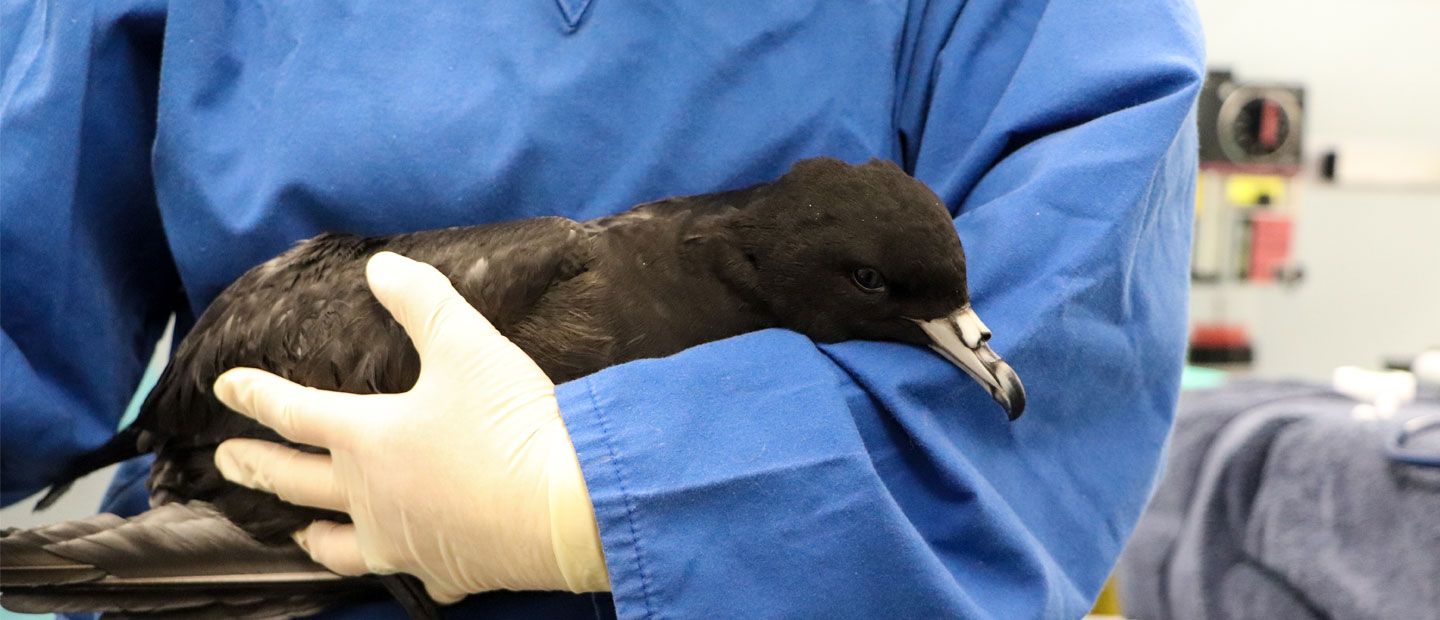In early June, a Waiheke local spotted this grounded tāiko / black petrel and since these birds can’t take off from land, they knew this beautiful seabird was in dire need of help.
At night, seabirds can use light from the moon, stars, and setting sun to navigate so it is possible that this bird was confused by bright urban lights and became disoriented.
The team at Native Bird Rescue – Waiheke Island took on this sea bird patient. It arrived mildly dehydrated, had bruising to his right side and an inflamed right leg. They started a short course of fluid therapy but after a week with no signs of this bird wanting to spread its wings, they contacted our Vet Hospital team.
Once the bird arrived at Auckland Zoo, our team was able to take blood tests and x-rays, which showed it did not have any fractures. It did have a slightly elevated white blood cell count, consistent with the leg inflammation. And as a precaution, the bird was started on medication to prevent the respiratory fungal disease of aspergillosis developing while in care.
But it seemed that the main rehabilitating factor was a larger space to exercise in with a paddling pool! Thankfully, this bird was successfully released back to the wild last week.
This is only the second tāiko the Native Bird Rescue has looked after. Thankfully, the last case was the impetus for a local accommodation provider to start turning off their signage lights at 10pm each night. It’s these types of individual and community actions that will make a real difference for ‘at risk’ seabirds!


